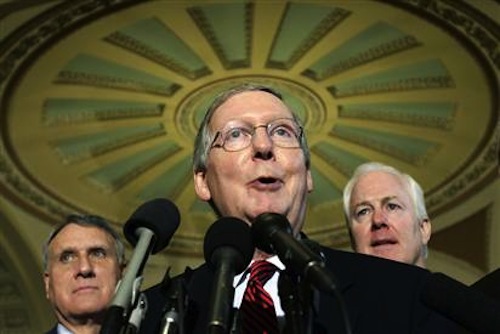A few years ago, when frankly things looked better than they do now, we started using the word “declinism” to describe the feeling that society was getting worse. There’s already a word for that: pejorism, but it sucks. In addition to sounding like a Victorian disorder, it does not do the important job of implying some recent peak. Anyone can think things are getting worse. A person who believes society is in decline must also believe it had a golden age. To embrace declinism, then, is to endorse the past. It is a patriot’s complaint, which probably explains why it’s so popular among old people. Today is Friday, and if any condition of society can be said to be better or worse than any other, it follows that society is at any moment on an upward- or downward-tending line. Won’t you experience confusion and fear at the new rap names with me?
Tag Archives: debt
Straight-faced, AP reports 11 year-old “saving for college” by flipping house
The 19th-century novelist Horatio Alger had one vein of narrative skill, and he mined it deeply. Alger specialized in stories about young boys who escaped poverty through hard work and/or good character. His fourth book, Ragged Dick, exemplifies the form. At the outset of the novel, Dick is a 14 year-old bootblack living on the streets. Various middle- and upper-class characters note his refusal to steal, supporting him in small ways until he has occasion to rescue a drowning child. The child’s grateful father gives Dick a suit and a job in his firm. Now a respectable member of middle-class society, Dick changes his name to Richard Hunter, Esq., and lives (mostly) happily through six sequels.
Since 1978, the cost of college tuition has increased 1,225%
According to Bloomberg, the cost of college tuition has increased thirteen-fold since 1978—more than medical care, at nearly five times the rate of CPI. But that’s because a college education is five times as good now, right? Possibly not—anecdotes suggest that our universities have not become dramatically better at teaching than they were four decades ago, and the record number of bachelor degrees we’ve awarded has not necessarily yielded a smarter populace. It has, however, produced an enormous quantity of debt—Americans owe $1.2 trillion in student loans, compared to just under $900 billion in credit-card debt. The class of 2015 is graduating with an average of $35,00 in debt per borrower; meanwhile, 46% of recent college graduates are working jobs that do not require degrees.
Surprise! We didn’t do dick!
 As of this morning, the Congressional Deficit Super Committee is neither super nor really a committee, since they managed to agree on exactly no things. Congress and the deficit remain real. Meanwhile, the group of six Republicans and six Democrats cannot even settle on why they failed to reach an agreement, although both sides concur in principle: it was them. “We made a reasonable offer and got nothing in return. We got naked in the room. Republicans are standing there in overcoats, hats and gloves and are toasty warm,” said one Democrat on the panel. “We showed some leg. The Democrats want us to get completely naked,” explained a Republican aide. As usual when two parties can’t bring themselves to take their clothes off at the same time, somebody else is going to get fucked.
As of this morning, the Congressional Deficit Super Committee is neither super nor really a committee, since they managed to agree on exactly no things. Congress and the deficit remain real. Meanwhile, the group of six Republicans and six Democrats cannot even settle on why they failed to reach an agreement, although both sides concur in principle: it was them. “We made a reasonable offer and got nothing in return. We got naked in the room. Republicans are standing there in overcoats, hats and gloves and are toasty warm,” said one Democrat on the panel. “We showed some leg. The Democrats want us to get completely naked,” explained a Republican aide. As usual when two parties can’t bring themselves to take their clothes off at the same time, somebody else is going to get fucked.
McConnell proposes Faustian bargain
As the August 3rd deadline to either raise the federal debt ceiling or submit to our Chinese masters nigh approaches, Mitch McConnell has proposed a new solution: Congress could authorize President Obama to increase the borrowing limit himself. The Senate Minority Leader suggested that the President be given the authority to allow an additional $2.4 trillion in debt over the next year, provided he specifies an equal amount in spending cuts. It’s an odd move, given that negotiations have foundered for weeks on Republican demands that the President agree to cuts before the ceiling is raised. Unless you are a Republican, in which case negotiations have foundered on the President’s insistence that 25% of the increase be covered by taxes on corporations and the wealthy.




